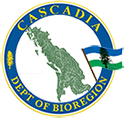The purpose of this lens is to provide a framework to guide what we do as Diplomats within the Department of Bioregion. Whether the work is posting a blog, creating a project, or leading a round table discussion, it is vital that we are examining that work with a social justice lens. It provides a common language to communicate about our work and ensures we are moving beyond short-term, immediate reaction to long term, thoughtful changes.
The lens can be broken down to four distinct interconnecting filters—access, agency, advocacy, and solidarity action. They each represent an important part of social justice work. While at times we may focus on one part, the true importance and potential of the lens lies in engaging with all four simultaneously…
Participatory democracy, civil society, transformative practice, and systemic change are found on the outer ring of the lens and lead to the ultimate goal of equity, found at the center.
In order to move toward equity, we must understand that social justice work is never-ending. Having conversation and reflective dialogue on access, agency, advocacy, and solidarity action is often uncomfortable but essential.
Access is defined as the gateway to inclusion and participation. It hinders or enables an individual or group to take part. We recognize the essential need for an inclusive society, we must make sure our work is accessible. Access can be something simple such as making sure you are hosting a discussion at a location with an ADA entrance or understanding an indigenous perspective before sending a relevant blog post to be published.
Agency means that individuals know their rights and are empowered to assert them, they own their own decisions and choices. They have the capacity and the ability to voice their concerns and act on them to create change for the better. Learning how to think critically about the world is a key strategy to develop one’s agency. Agency is imperative for developing socially responsible, democratic participation in a civil society.
Advocacy is a deliberate process of influencing outcomes so that change can occur. It requires a set of skills that allows a person to understand a problem and affect change using varied strategies and tactics. Developing the skills to successfully advocate for oneself or on behalf of others involves awareness (knowing what’s happening), analysis (seeing the different parts, their impact, and the importance to the whole), and action plans (knowing what to do and how to do it). Action plans include a purpose, a message, a way to express the message, and an audience. Advocacy can be done individually or in groups.
Solidarity action refers to working with others to act for the collective betterment. It requires us to recognize injustice, know and navigate our social location within power, privilege and oppression to work across differences to nd a common ground, and to achieve equity. Solidarity action requires coalition building within a group and networking with other groups. Examples of skills that help to achieve solidarity action can include empathy, co-operation, coalition building, and effective mediation and conflict-resolution skills.
Participatory democracy, transformative practice, systemic change, and civil society, like the ultimate goal of equity, are to be kept in mind when developing plans to advance access, agency, advocacy, and solidarity action. Invoking these concepts, we challenge the control of existing elite government structures, whether they are ruling classes in society or the power structures in other places where we coexist. We also must look inside to examine how our own privilege affects our values and actions. These are some ways we choose to do socially just work and the means by which we will achieve greater equity.
A Social Justice Lens Checklist
Here is a checklist that you can use to assess whether your projects, resources, events, and so forth meet the criteria of the social justice lens. If not, you may want to identify alternatives that do satisfy these criteria. Note that some criteria may not apply to the specific item you are evaluating.
Access
❏ values a welcoming and inclusive approach to all people equally
❏ values openness to the ideas and opinions of others as equal participants
❏ teaches the value of multiple perspectives
❏ demonstrates respect for democratic processes and civil society
❏ values community and co-operation
❏ responsive to all others equally
Agency
❏ develops understanding of one’s right to create change
❏ encourages belief in one’s ability to affect one’s own reality
❏ nurtures action and empowerment of everyone equally
❏ develops ability to think critically about social problems
❏ develops leadership skills
❏ values recognition and respect for the agency of others
❏ actively encourages leadership in working towards positive change that benefits everyone
❏ encourages people to defend their own voice
❏ empowers people
❏ values participatory democracy
❏ contributes to the development of ability to participate in the world
❏ contributes to the development of ability to change the world
Advocacy
❏ builds skills needed to affect systemic change using various strategies
❏ develops an understanding of one’s position and privilege in society
❏ develops awareness of social realities
❏ develops analytical ability
❏ develops awareness of how to respond to make change
❏ develops voice and agency to enhance the ability to influence outcomes
❏ empowers the voice of disenfranchised and minorities
Solidarity action
❏ promotes transformative work for the betterment of others
❏ nurtures an understanding that an injury to one is an injury to all
❏ values co-operation and coalition-building
❏ works across differences to stand common ground
❏ advocates broad interconnections a
nd common goal-setting and actions
❏ shows recognition of the strength in unity
❏ shows effectiveness in mediating and resolving conflict to build alliances
❏ encourages collaboration with disenfranchised or minorities
❏ nurtures ability to take action with empathy
adapted from the BCTF Social Justice Lens Booklet



Post a comment